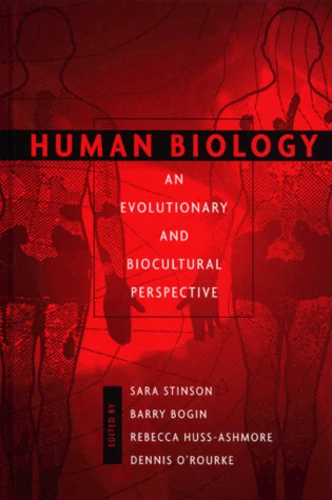Human Biology. An Evolutionary And Biocultural Perspective
Par : , , ,Formats :
- Paiement en ligne :
- Livraison à domicile ou en point Mondial Relay indisponible
- Retrait Click and Collect en magasin gratuit
- Nombre de pages639
- PrésentationRelié
- Poids1.095 kg
- Dimensions16,3 cm × 24,3 cm × 3,5 cm
- ISBN0-471-13746-4
- EAN9780471137467
- Date de parution21/06/2000
- ÉditeurWiley
Résumé
Human biology encompasses the central branches of the life sciences - anatomy, physiology, genetics, and biochemistry - as the basis for comparative, evolutionary, and cross-cultural studies of human populations. Human Biology: An Evolutionary and Biocultural Perspective reviews evolutionary, cultural, ecological, and genetic perspectives, and then explains how these data are used to reconstruct theories of human population, human adaptation to climate, infectious diseases, and food availability. World-renowned authors examine the human life span, including aging and the influence of biological and behavioral factors on growth variation.
Although human biology relies heavily upon an evolutionary perspective to explain variation through space and time, it also regards the effect that human culture has had on our biology as crucial. This comprehensive introduction to the field of human biology covers genetic variation, variation related to climate, infectious and noninfectious diseases, growth, and demography. In addition, Human Biology. An Evolutionary and Biocultural Perspective is designed to maximize reader-friendliness, with glossary terms high-lighted within the text and chapter summaries. Human Biology also includes:
- Boxed text within the chapters, which clearly explains the methodology used by fieldworkers, laboratory researchers, and statisticians
- Numerous illustrations, summaries, key references, and a thorough glossary
This extensive guide to human biology is an essential resource for all professionals and academics in the fields of human biology, genetics, evolutionary biology, anthropology, and population biology.
Human biology encompasses the central branches of the life sciences - anatomy, physiology, genetics, and biochemistry - as the basis for comparative, evolutionary, and cross-cultural studies of human populations. Human Biology: An Evolutionary and Biocultural Perspective reviews evolutionary, cultural, ecological, and genetic perspectives, and then explains how these data are used to reconstruct theories of human population, human adaptation to climate, infectious diseases, and food availability. World-renowned authors examine the human life span, including aging and the influence of biological and behavioral factors on growth variation.
Although human biology relies heavily upon an evolutionary perspective to explain variation through space and time, it also regards the effect that human culture has had on our biology as crucial. This comprehensive introduction to the field of human biology covers genetic variation, variation related to climate, infectious and noninfectious diseases, growth, and demography. In addition, Human Biology. An Evolutionary and Biocultural Perspective is designed to maximize reader-friendliness, with glossary terms high-lighted within the text and chapter summaries. Human Biology also includes:
- Boxed text within the chapters, which clearly explains the methodology used by fieldworkers, laboratory researchers, and statisticians
- Numerous illustrations, summaries, key references, and a thorough glossary
This extensive guide to human biology is an essential resource for all professionals and academics in the fields of human biology, genetics, evolutionary biology, anthropology, and population biology.

